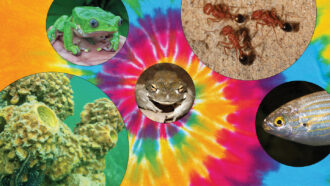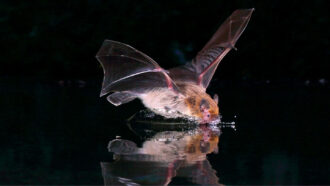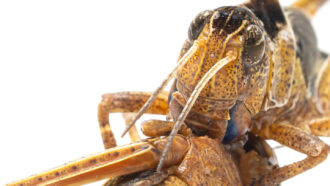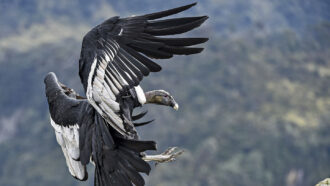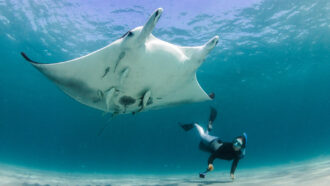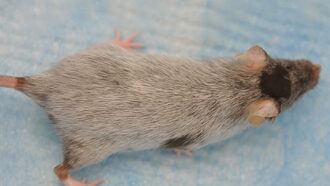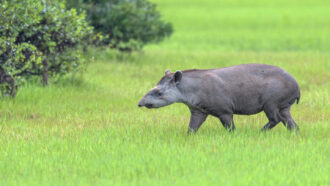Why male giraffes drink potential mates’ pee
Male giraffes stick their tongues in a female’s urine stream to check for pheromones
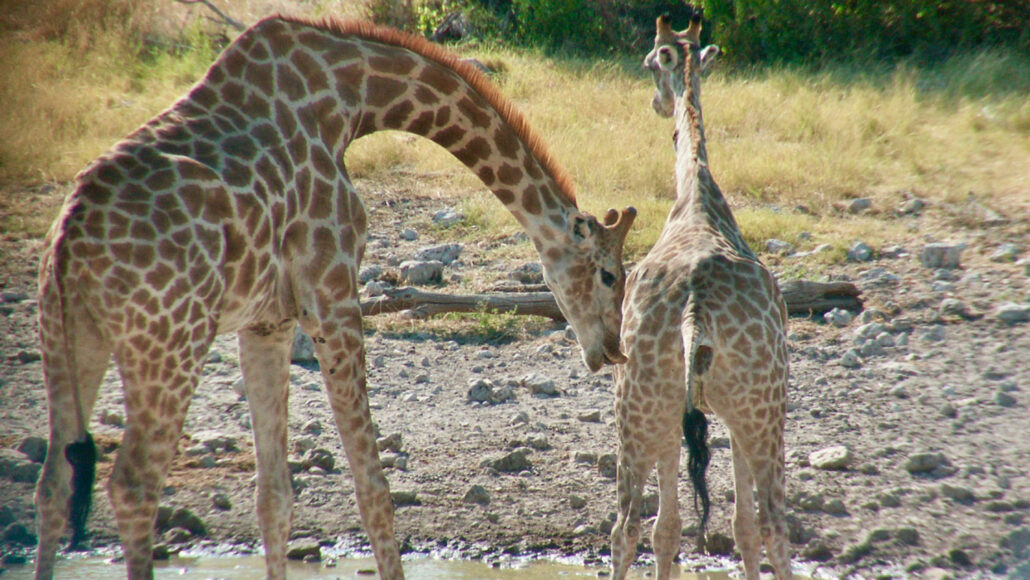
A male giraffe curls his lips as part of a “flehmen response” that helps him detect pheromones in a female’s urine. The pheromones signal whether the female is ready to mate or not.
L. Hart/UC Davis
